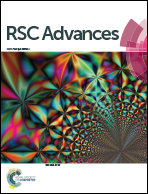Experimental study on the degradation mechanism of LaCoO3-based symmetric supercapacitors
Abstract
In this paper, LaCoO3 powders were prepared by the urea combustion method and used as electrode materials for supercapacitors. The effect of the potential window and the current density on the performance degradation of LaCoO3 electrodes during the cycling test was analyzed. The degradation mechanism of LaCoO3-based symmetric supercapacitors was discussed. The results of the cycling test show that: with the increase in potential window and current density, the performance degradation in the cycling test becomes more intense. The results of cyclic voltammetry tests, galvanostatic charge–discharge tests, X-ray photoelectron spectroscopy tests and KOH electrolyte concentration measurements before and after the cycling test show that the degradation of the supercapacitors is mainly caused by the occurrence and accumulation of irreversible redox reactions during the charge and discharge process, which reduces the ratio of Co2+/Co3+ and the number of oxygen vacancies.



 Please wait while we load your content...
Please wait while we load your content...